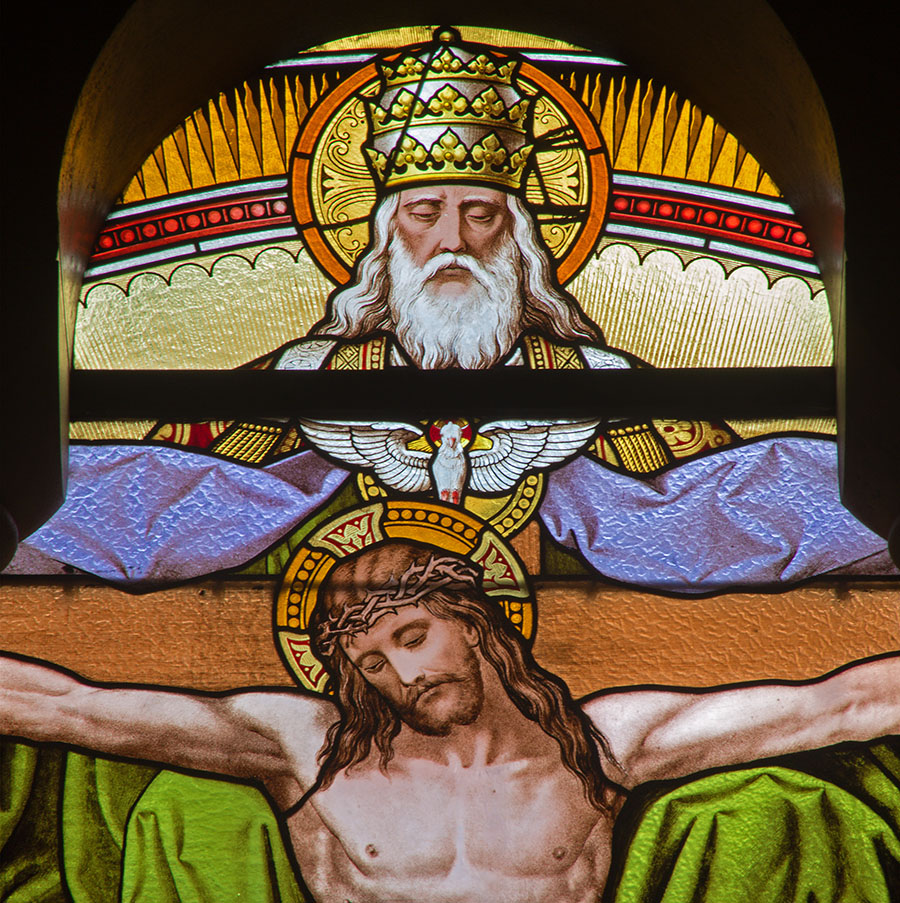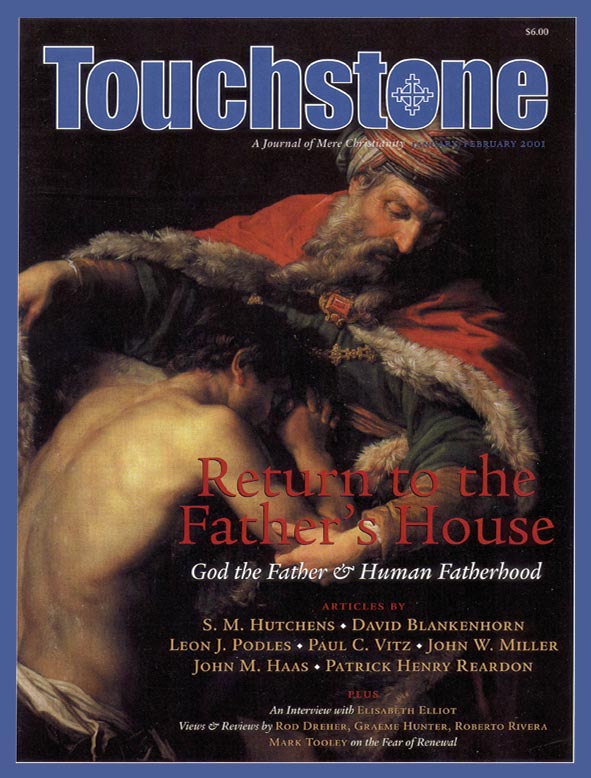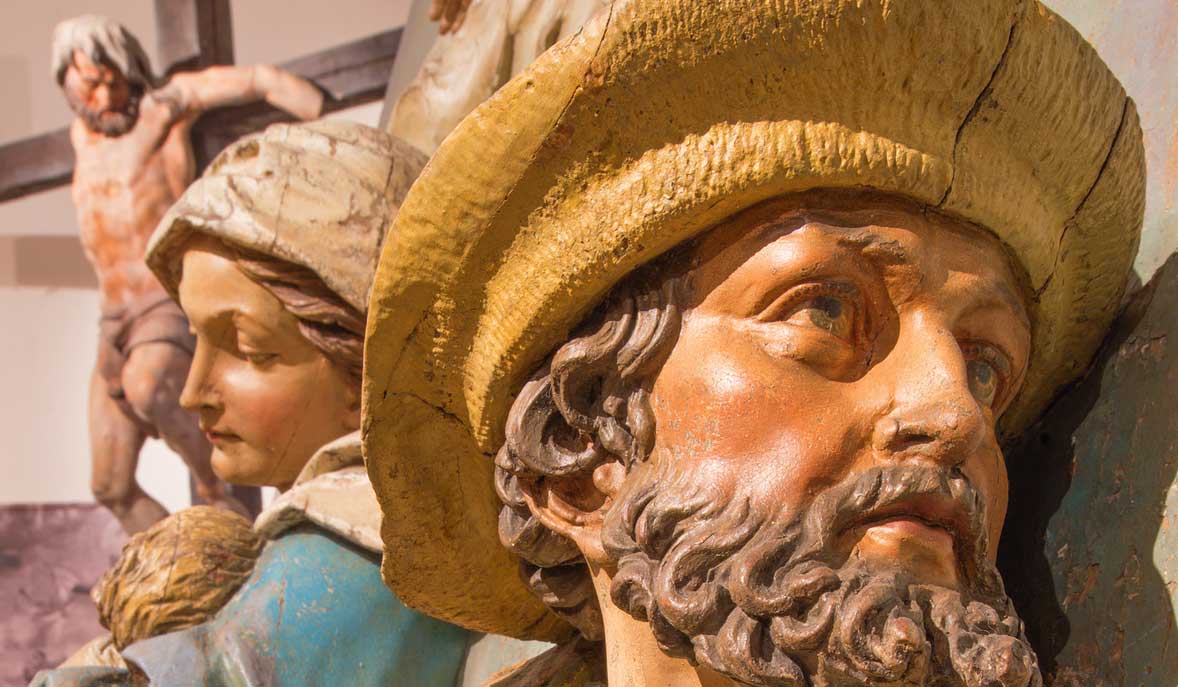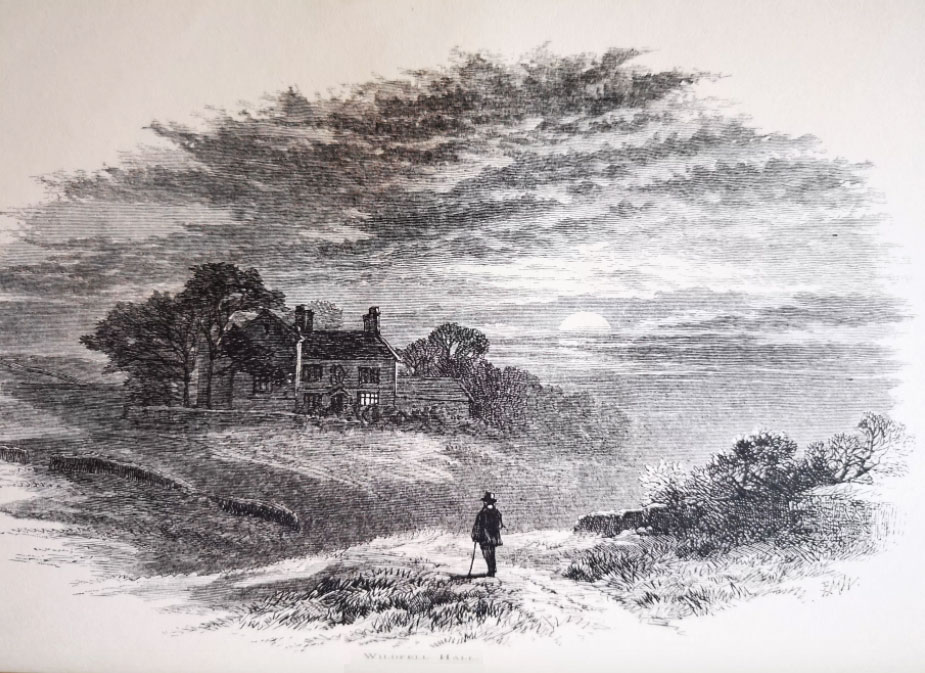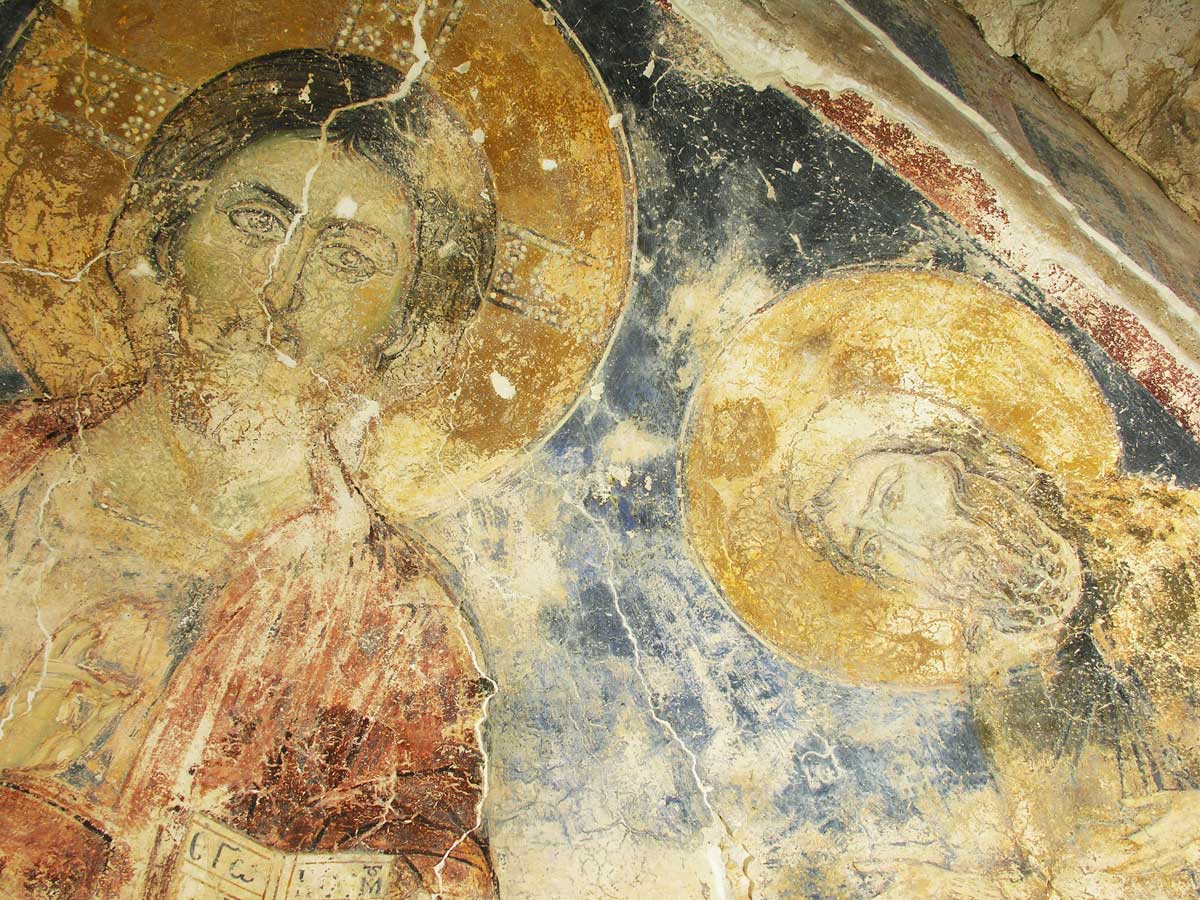Feature
Thou Art the Everlasting Son of the Father
The Christian Meaning of the Fatherhood of God
by Patrick Henry Reardon
Not long ago my wife and I attended a memorial service honoring a recently departed friend of ours, a well-known and very influential Presbyterian pastor in Pittsburgh. The service lasted approximately two hours and was jointly conducted by several members of the clergy who celebrated his life and ministry, eulogizing our friend and leading the congregation in various prayers, along with the singing of hymns. Now what struck me the most about this memorial service, and the only point on which I could voice a complaint, was how God was addressed in those prayers and hymns.
Or more accurately, how God was not addressed in those prayers. During that service of worship God was explicitly invoked in nearly two dozen separate prayers, and the congregation sang some seven or eight hymns, but except for one recital of the Lord’s Prayer and the singing of one traditional hymn that ended with a Trinitarian doxology, no visitor from Mars or elsewhere would ever have guessed that it was the Christian God who was being invoked in that assembly.
With the two brief exceptions already mentioned, the forms by which God was addressed and invoked during that two-hour worship service bore hardly any resemblance to any formats of worship common among Christians of any previous age. More specifically, except for that one hymnic doxology, there was no mention of the Holy Trinity. To judge by such things as were actually spoken to God during that service of worship, the congregation may as well have been praying to Marduk, Vishnu, Lug, or any of dozens of pagan divinities.
In particular, there were two forms of address obviously being avoided with a consistency and effort that could only have been deliberate—that is, invoking God as Father and confessing Jesus as Lord.
Now, however distressing I found this experience, none of it was particularly surprising. Anyone familiar with current trends in contemporary liturgical reforms is well aware of this widespread disposition to eliminate, or at least to minimize, or even to neutralize, those two expressions in particular: Father and Lord. Whether in the new Methodist service book in use for the past several years, or the so-called trial liturgies inflicted from time to time on those long-suffering Episcopalians, or the various new hymnals adopted by several of the major and mainline churches, traditional references to the Persons of the Holy Trinity are rapidly disappearing in modern worship, being replaced by other names.
More particularly, conspicuous efforts have been made to eliminate references to the Father, the Son, and the Holy Spirit—names that refer to the eternal God as God—and to replace those names with such titles as Creator, Redeemer, and Sanctifier, names that do not refer to God in his eternal being, but to God solely in his relationship to us.
The designations Creator, Redeemer, and Sanctifier, all of them very important, obviously, have reference to God’s relationship to the universe and ourselves; this is what in dogmatic history is called the “economic” Trinity—that is, God as effecting the “economy” of salvation. The names Father, Son, and Holy Spirit, on the other hand, refer to the inner life of God—“theology” in the strictest sense of that word. If the world did not exist—if there had never been any human beings at all, created to know and love God—then God would not be Creator, Redeemer, and Sanctifier. He would still be, however, Father, Son, and Holy Spirit. The traditional doxological language of the Church has always favored a concentration on God’s eternal being, God in himself, which is why our prayer has laid the final and all-encompassing stress on God as Father, Son, and Holy Spirit.
The Witness of the Holy Spirit
Let me suggest that the present abandonment of this traditional perspective is very grave, for it involves a most serious grieving of the Holy Spirit. According to the New Testament the enlightenment of the Holy Spirit endows us with the ability to make two fundamental assertions of dogma, one with respect to God the Father and the other with regard to God the Son.
We may begin with God the Son, for it is only in his Son that we know God the Father. The Church’s acclamation that “Jesus is Lord” is given by the Holy Spirit. According to the Acts of the Apostles 2:36, when the Holy Spirit was poured out on the body of believers on Pentecost morning, the very first proclamation of the Church was: “Therefore, let all the house of Israel know assuredly that God hath made that same Jesus, whom ye have crucified, both Lord and Christ.” And again, in 1 Corinthians 12:3, St. Paul tells us that “no man can say that Jesus is Lord, but by the Holy Spirit.”
Patrick Henry Reardon is pastor emeritus of All Saints Antiochian Orthodox Church in Chicago, Illinois, and the author of numerous books, including, most recently, Out of Step with God: Orthodox Christian Reflections on the Book of Numbers (Ancient Faith Publishing, 2019).
subscription options
Order
Print/Online Subscription

Get six issues (one year) of Touchstone PLUS full online access including pdf downloads for only $39.95. That's only $3.34 per month!
Order
Online Only
Subscription

Get a one-year full-access subscription to the Touchstone online archives for only $19.95. That's only $1.66 per month!
bulk subscriptions
Order Touchstone subscriptions in bulk and save $10 per sub! Each subscription includes 6 issues of Touchstone plus full online access to touchstonemag.com—including archives, videos, and pdf downloads of recent issues for only $29.95 each! Great for churches or study groups.
Transactions will be processed on a secure server.
more on Fatherhood from the online archives
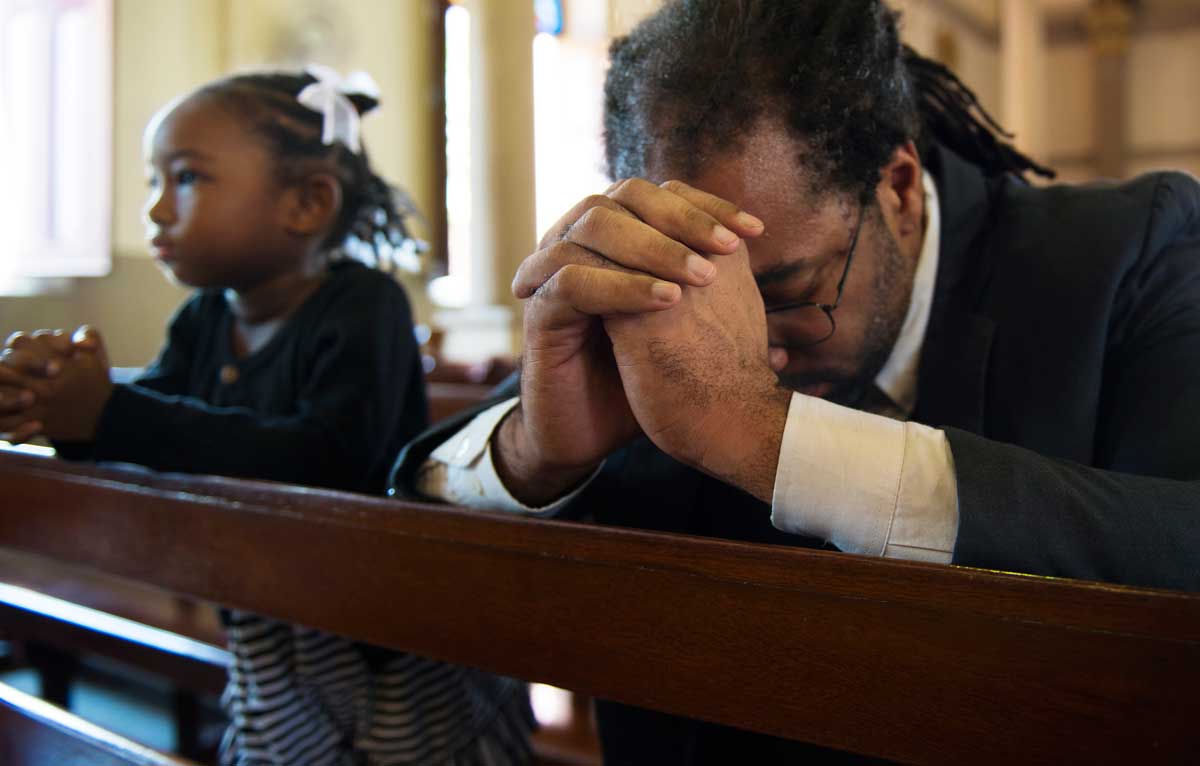
14.1—January/February 2001
The Christian Heart of Fatherhood
The Place of Marriage, Authority & Service in the Recovery of Fatherhood by John M. Haas
more from the online archives
calling all readers
Please Donate
"There are magazines worth reading but few worth saving . . . Touchstone is just such a magazine."
—Alice von Hildebrand
"Here we do not concede one square millimeter of territory to falsehood, folly, contemporary sentimentality, or fashion. We speak the truth, and let God be our judge. . . . Touchstone is the one committedly Christian conservative journal."
—Anthony Esolen, Touchstone senior editor





